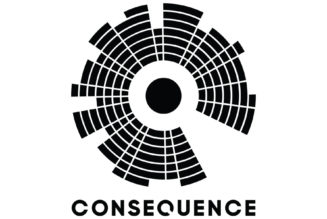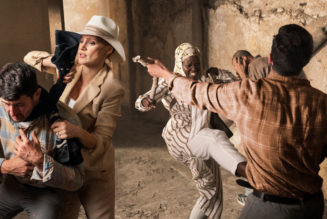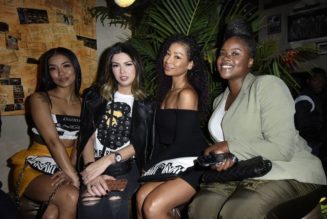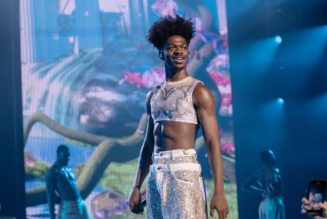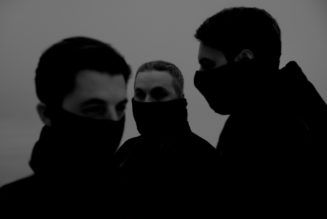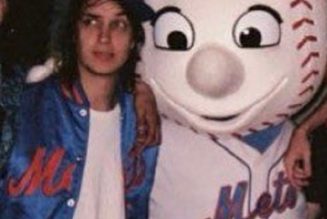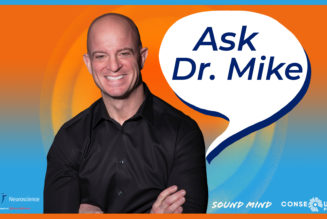It was more than 28 years ago that five ganja-toking, Goldeneye-obsessed, Bad Brains-worshipping musicians, known collectively as 311, left their hometown of Omaha to chase a record deal in a post-riots Los Angeles. The odds weren’t in their favor, and there was no guarantee things would work out for the young Nebraskans.
“There was no Plan B for us,” bassist Aaron “P-Nut” Wills tells SPIN. “Hell, there was no Plan A. We were just going for it, and we were just playing. We were a band trying to make a new sound, by just falling in love with these rhythms and these ideas and having fun together, really.”
Today, over three decades after their first official live gig, opening for Fugazi at the Sokol Arena, 311 is essentially a corporation. The genre-fusing stoners — who broke out at the onset of the ‘90s rap-rock boom — achieved the virtually impossible: a sustainable music career, with multiple album cycles and sell-out summer arena runs. With their unique sound and devotion to their audience, the rockers have, almost accidentally, become a brand.
Since solidifying their lineup after their L.A. move, the quintet — P-Nut, singer and guitarist Nick Hexum, drummer Chad Sexton, guitarist Tim Mahoney, and vocalist Doug “SA” Martinez — have issued 13 studio albums, from 1993’s Music through 2019’s Voyager, and played thousands of live shows. All the while, they’ve amassed a rabid following, while cementing a culture on positivity and celebration.
“We love our subculture, and we love that [our fans have] taken care of us for so long, and we love giving them what they want,” P-Nut says. “It’s a great relationship.”
So, how did these lifelong friends go from playing Guadalcanal Diary covers in dodgy Omaha basements to peddling their own line of cannabis products and hosting themed Caribbean cruises? Even they can’t believe their band has become something of a lifestyle.
“There have been a lot of things that’ve gotten us here — including luck, including things that were out of our control,” Sexton tells SPIN, surveying the band’s career. “Some credit goes to us members, but some of it was just kind of luck and magic, in a way. I think, ultimately, our love of music has kept us together. Your passion for music really matters. So do the relationships that you build within the band. But we’ve also always followed our hearts, which is kind of hard to do in a business that’s trying to tell you not to.”
Adds P-Nut: “I like the way these guys push me, and I like the way I push them, and how everything’s equal when we hit that stage … that’s magic.”
The first hint of that 311 magic emerged around 1985, at Westside High School in Omaha. Hexum was in the concert jazz band with Sexton, and he had a cover band with Mahoney — but no driver’s license.
“We had to have our moms drive us around to gigs and stuff like that,” Hexum remembers. The group was called The Eds, “because our drummer was named Ed,” he continues. “We covered the Cure, the Smiths, R.E.M., and a lot of smaller bands, like Guadalcanal Diary. Eventually, we started doing our own tunes, and those became the highlight of our shows.”
The short-lived Eds called it quits when Hexum graduated from high school a year early and moved to L.A. to pursue music on his own. When he returned to Omaha the following year to attend Mahoney’s and Sexton’s graduation, the three friends got together to jam. Hexum, feeling a spark, stayed.
“We had a three-piece band for a couple of years called Unity,” Hexum says, “and that’s where we started blending a lot of different styles together. We were really into hip-hop and funk and punk, and the Red Hot Chili Peppers were coming out at the time, and we were like, ‘Wow, you can have punk rock energy but then also have, like, chops in your music, and funk and different styles mixed together.’ That was sort of a watershed moment.”
All three had moved to Los Angeles in late 1988, intent on signing with a label. But, that didn’t happen, and Sexton, disenchanted by the experience, came back home, enrolled at the University of Nebraska at Lincoln, and started jamming with P-Nut — still a student at Bryan High School — and a guitarist named Jim Watson.
“I remember the first time hanging out with Chad at his dorm,” P-Nut says. “I had my first bong hit in his room. He was maybe 20, and I was 16. Those were great times, and we bonded over that. Music was our release, and afterward, we would smoke and talk about movies and sports and play video games. Those were great days.”
Sexton managed to lure Hexum back home months later, and the two decided to revive Unity — but with P-Nut playing bass and Watson on second guitar. In 1989, they recorded the coverless Downstairs EP in Hexum’s parents’ basement. And with the 1990 release of Dammit!, the band’s first full-length and second independent set, the band officially changed its name to 311 — a reference to Watson’s infamous streaking arrest in the late ‘80s.
The newly christened band tapped Mahoney to replace Watson, and more music followed. First came their Unity album: They produced only 1,000 copies, selling them at 311 shows and through area consignment shops. Then, in 1992, Martinez — who knew P-Nut from their days at Bryan High — graduated from a collaborator to a full-time member. 311, with its hybrid sound solidified, recorded another EP, Hydroponic.
Not long after the release, 311 packed up what little they had, and all five members moved back to L.A. for a second chance. P-Nut’s mother wasn’t amused. “My mom wanted me to go into plumbing, just in case the music thing didn’t work out,” he recalls. “I was 17 when we moved, and, I knew I was surrounded by immense talent and, like, dudes with a dogged work ethic, and I trusted that. I think that’s why we all attached ourselves to each other.” Adds Sexton: “When you’re really young, you don’t really second-guess anything.”
For months, the broke band struggled to get noticed and survive. “I remember things were pretty lean when we first moved out to L.A.,” Hexum says, “and our folks would send us care packages, which were basically just boxes of food, to get us through. However, it really wasn’t that long before we had a record deal.”
As they were preparing to leave Omaha, 311 learned they had a famous fan: Their music somehow found its way into the hands of Eddy Offord, the producer behind some of the finest albums by prog-rock legends Yes. “I grew up listening to Yes, so to hear that Eddy Offord was interested in us … I was just like, ‘That can’t be real?’ But it was real,” Sexton enthuses. “We talked to him over the phone a few times before we moved out there, but nothing was set in stone.”
On the long drive out to L.A., 311 took a little detour to Red Rocks Park and Amphitheatre, just outside of Denver, soaking up the venue’s natural majesty. “It’s a park, and you can actually go down and stand on that stage, which we did,” Hexum reminisces. “It’s a magical place. One of us said, ‘One day, we’re gonna rock this place,’ and then it was only three or four years later, in 1995 or 1996, and we got to headline there. That was a big, triumphant moment for us.”
Prior to their move, 311 only had a few contacts in Los Angeles, other than Offord, Hexum says. According to Sexton, “when we finally moved out there, I remember he was at our house to meet us — just waiting for us to pull in. That was one of the coolest things.”
From their shared residence in Van Nuys, 311 spent their first few weeks in California bombarding every A&R toady they could identify with their demo. Three months in, on the brink of giving up, they got an offer from Capricorn Records and inked a deal. Offord was already on board to produce their official debut studio album, 1993’s Music. “We learned so much from Eddy and had a great time making that first record with him,” Sexton says.
Capricorn issued the track “Do You Right” as a single, and a number of alternative rock radio stations added it to their rotations, helping the song reach #27 on Billboard’s Modern Rock Tracks chart. With no label support for a tour, 311 decided to promote Music through a self-financed, multi-city trek. To make the shows, 311 borrowed an old, run-down RV from Sexton’s father.
311 caught fire on that tour — in multiple ways. On July 24, 1993, passing through Bois D’Arc, Missouri en route to a gig in Kansas City, the gas tank of 311’s RV ignited. Noting the smoke and flames in the vehicle’s side mirror, Hexum pulled over, and, as the band’s members scrambled to safety, the RV exploded — destroying the van it was towing, all the band’s equipment, and their personal effects.
“We made it out just in time,” says Hexum, who suffered minor burns in the accident, “and it didn’t stop us.” Using borrowed clothing and equipment, 311 finished out the tour, playing the final three shows they had scheduled before returning to L.A. “We’re definitely so blessed, and we always keep that in mind,” he says. “We like to keep an attitude of gratitude going.”
The near-death experience gave the band a healthier perspective, which they brought into the Grassroots sessions. 311 built a recording studio in the home they were sharing in Van Nuys, once again calling on Offord to produce and engineer their versatile second LP.
“What helped us out, in the beginning, was people turning their friends onto us,” Hexum explains. “We didn’t get a lot of help from the music industry, as a whole — it was all done through grassroots means, which is why we called our second album that. We were able to grow as a band because people shared us with others.”
However, while they were recording that 1994 album, 311’s relationship with both Offord and Capricorn Records started souring. “That second one, that was a little different, but we won’t go into that,” explains Sexton.
The signature 311 sound started taking shape on Grassroots, which they promoted with an extensive and successful U.S. tour that expanded their fanbase. On the road, they wrote the majority of the self-titled “Blue Album,” which they recorded with producer Ron Saint Germain in 1995. “We had always wanted to work with him, and his passion for the songs matched our own,” Sexton says.
The release of 311 that summer was a transformative moment in the band’s career — catapulting them from the underground to the mainstream. Radio stations latched onto three of the album’s 14 tracks: “Don’t Stay Home,” “All Mixed Up,” and “Down.” MTV designated the Down” video a “Buzz Clip,” adding it to heavy rotation.
“Having that ‘Buzz Clip’ was such a big deal back then, because that was sort of like being anointed — this is what everyone’s talking about,” Hexum says. “So, when MTV played that little ‘Buzz Clip’ graphic before our video was played, it was like, ‘Okay, this is getting serious.’ That’s when it got a lot younger at the shows. It went from, like, college-aged to high-school-aged at the shows for a while.”
Sexton recalls thinking his band had reached “a whole new level” after MTV slapped its proverbial stamp of approval on 311. “I grew up on MTV in the ‘80s and — I know it’s different now — but what it was back then, and it kinda still was in the ‘90s, it was a great tool to help get us on a national level.”
“Things changed almost overnight,” P-Nut recalls. “There’s a place in Dallas called Trees, which is, like, as big as my patio, and as good a place as you can see a show in the world. We played there in ’94, right before the ‘Blue Album’ hit, and it was just a sweat-fest every night — no one onstage was wearing shirts, half the audience was just drenched and beside themselves, certainly by the end. And not even a year later, we’re having our gold party for the ‘Blue Album.’ That seemed like a really big deal, because there were a lot of people there, and it was really, really fun — and we really didn’t do that that much. Certainly, that was kind of our first big huzzah from the record label.”
The success of “Down” even attracted the attention of producers for David Letterman’s nightly show in 1996.
“I was just such a huge fan of his, where I would stay up late in the ‘80s and watch him when he was on after [Johnny] Carson,” Hexum remembers, “so, to get to play his show, at the same time when ‘Down’ was blowing up, it was a very heady time, where we were all just like, ‘Wow, we did it.’ Here we are — kids from Nebraska, on a dream and a prayer — and now, here it is.”
They spent roughly the next two years on the road, writing new material and playing live, including an opening slot at Madison Square Garden for the recently reunited KISS.
“We got the offer, and I really couldn’t even believe it,” Sexton says. “I listened to KISS a lot when I was growing up, and it was with all the original members even. That was really amazing for me — I think for everybody, but maybe more so for Tim and me, because we were the biggest KISS fans in the band.”
In early 1997, 311 built on that momentum by recording the 22-track Transistor. “That was an experiment for us, knowing our audience was probably going to be as big as it ever was going to be,” P-Nut explains, “and hopefully, showing our depth as musicians at the same time. Having that be the offering that came up next was a gamble. And the whole point was to put as much music on there as a CD could fit.”
Sexton was sure the subtle shift in 311’s sound on Transistor — which yielded the radio singles “Beautiful Disaster,” “Prisoner,” and the title track — would pay off. “It’s always best to bet on yourself, especially if you have a record like that,” he says. “You have to keep betting on yourself and keep coming from the heart.”
The critics largely panned Transistor as too ambitious, and 311 did what they always do: tour like mad before a break in 1998.
311’s fractious relationship with Capricorn Records came to an end in 1999 with Soundsystem, which features the mega-hit “Come Original” and an admirable cover of Bad Brains’ “Leaving Babylon.” The band sued their label in 2000, claiming in a filing in Los Angeles Superior Court they would have been even more popular if not for Capricorn’s “ineptitude” in promoting them. 311 was permitted to exit its deal with Capricorn and signed with Volcano Records for 2001’s From Chaos — a reference, Hexum says, to the band’s time with the label that signed them.
The album contained the radio hit “Amber” (rumored to have been inspired by Hexum’s ex, one-time Pussycat Dolls leader Nicole Scherzinger) and saw the band reunite with Saint Germain, who later produced 2003’s Evolver and 2005’s Don’t Tread on Me.
“‘Amber’ was the third single and it was kind of an afterthought,” Hexum says. “I always really believed in the song, but it was just sort of like, ‘Oh, we’ll just put out one more single, but the record’s kind of over,’ and it was a really slow burn. It took nearly 10 months before it really got up there [on the airplay charts]. That was a really long album cycle just because it was such a different sound that it took people a while to get used to it.”
The band had a commercial resurgence following an appearance on the 50 First Dates soundtrack in 2004. Their reggae-imbued cover of the Cure’s “Lovesong” was the soundtrack’s single, and it rapidly reached the top spot on the Alternative Songs chart.
“Because of the huge push of being part of that movie, ‘Love Song’ rocketed up to the top of the alternative charts, so it was pretty unusual for us to have that,” recalls Hexum. “All of our so-called hits before that had been slow-burners — even on the ‘Blue Album,’ the ‘Down’ single was our third single. So, because our music varies so much from one song to the next, it has always been pretty hard to know what songs are going to connect or not. It’s sort of a roll of the dice.”
After the lackluster reception of Don’t Tread on Me, it was time to take a break from the studio. “I can’t say it was always easy, and it has morphed over time,” Sexton says. “But we might have had a hard time putting [Don’t Tread on Me] together, and really finishing that one strong. It was kind of like, ‘Well, maybe we’re getting confused or the right motivation isn’t there’ or whatever it is. So, we just kind of took a break at that point. Tried to hit the old reset button, and I think it worked.”
The band still got together for tours in the summers of 2006 and 2007 but wouldn’t regroup to write until late 2008. The following year, after nearly a four-year gap, 311 issued the Bob Rock-helmed Uplifter, which opens with the hit single “Hey You.”
“That whole process [with Rock] was a little bit different for us, but listening back to that record, I think it’s pretty solid — all the way around,” Sexton says. “So, and then we kept going from there.”
They re-teamed with Rock for 2011’s pithy Universal Pulse. Three more releases followed over the decade: the crowdfunded Stereolithic three years later, the well-received Mosaic (their second-longest LP) in 2017, and the energetic Voyager in 2019. Hexum says he’s spent portions of the COVID-19 quarantine tinkering with song ideas for 311’s eventual 14th record, though they currently have no plans for the project.
Now, more than 30 years after their first gig, 311 remain criminally underrated with critics and institutions like the Grammys. But their fans still latch onto the celebratory spirit that defines their music.
“It’s been a long, strange trip that we are so grateful for, and they keep it going for us, in a way,” Hexum says. “That makes it really special. We’ll always do our part, but they’re doing their part too, which makes us very grateful.”
Adds P-Nut: “It’d be nice to get that nod from the Rock and Roll Hall of Fame at some point, but we are treated and respected by our fans well enough that we don’t need anyone else to tell us we’re cool or legends or anything like that. We hear enough of that from our fans, which makes us feel like the time that we put into it — the ups and the downs we went through, together and individually — are all worth it.”



